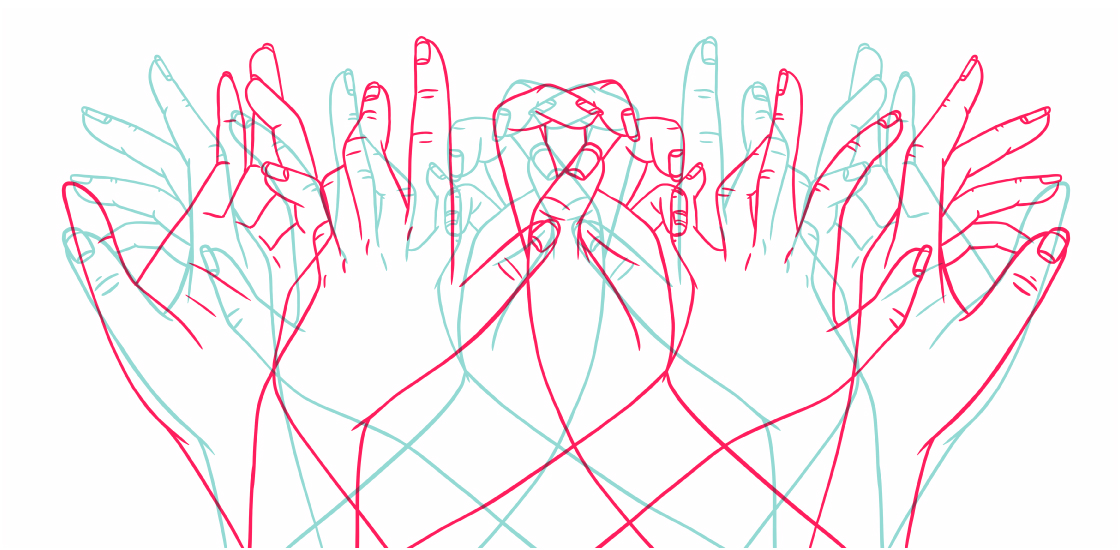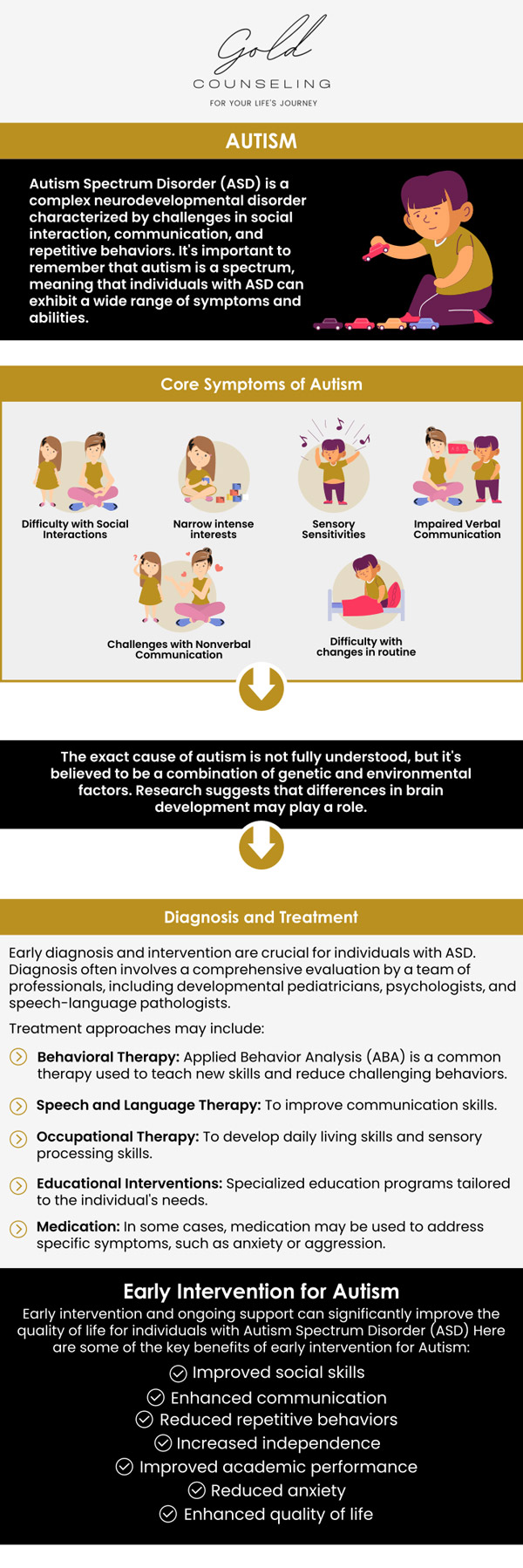How to design sensory-friendly spaces with advice from an Autism Therapist
How to design sensory-friendly spaces with advice from an Autism Therapist
Blog Article
Secret Symptoms And Signs to Identify in People With Behavior Autism
When you run into a person with behavioral autism, recognizing key indicators and signs and symptoms is important. You might discover challenges in social communications and interaction, along with a solid demand for regimens. In addition, sensory level of sensitivities can cause overwhelming experiences. Comprehending these attributes can boost your support and interventions, yet there's more to uncover concerning just how these habits show up in day-to-day circumstances. Let's discover what these indicators actually appear like.
Obstacles in Social Interactions
When you interact with someone on the autism range, you could see they fight with social cues and interaction. These challenges can make social communications really feel frustrating for them. You may see them preventing eye contact or standing too close or too much away during discussions, which can produce misunderstandings. They could not notice body movement or faces, making it harder for them to evaluate how others are feeling.
In addition, you may discover that they favor regimens and familiar setups, which can limit their readiness to involve in new social scenarios. They may chat about their rate of interests in wonderful detail without noticing if you're interested when they do engage. This can cause one-sided conversations that leave you feeling detached. Comprehending these obstacles can aid you approach interactions with compassion and perseverance, cultivating a much more comfortable environment for both of you.
Trouble With Verbal and Non-Verbal Communication

Non-verbal communication can be much more tough. You may see an absence of eye get in touch with or limited use of gestures, which can make communications feel awkward. Faces might not constantly line up with the conversation, leading to confusion about their sensations. Acknowledging these indicators is necessary, as it assists you far better support and involve with people on the autism spectrum. By recognizing their communication obstacles, you can foster more purposeful connections and offer an extra helpful environment.
Repetitive Behaviors and Routines
Interaction obstacles frequently go along with other indicators of autism, such as recurring behaviors and a strong preference for routines. You may see that people with autism frequently take part in details, repeated actions, like hand-flapping, rocking, or repeating expressions. These habits can offer convenience and a sense of control in an often overwhelming world.
When they follow a structured schedule,Routines are equally crucial; many individuals thrive. You may locate that adjustments to these routines can lead to significant distress. If they have a daily routine of eating breakfast at a specific time or following a particular course to institution, any disruption can create anxiousness.
Acknowledging these patterns helps you recognize their actions and offer support. By suiting their need for routine and permitting repeated actions, you can develop an extra comfy atmosphere that eases their obstacles.
Sensory Sensitivities

Common Sensory Triggers
Sensory level of sensitivities can considerably affect daily life for people with autism, as certain stimulations frequently cause frustrating responses. Common sensory triggers include loud sounds, intense lights, and strong smells. You could notice that sudden noises, like alarms or sirens, trigger anxiousness or distress. Similarly, fluorescent lights in stores can feel rough and uncomfortable. Structures can likewise play a substantial duty; rough materials or specific food appearances might be excruciating for you. Furthermore, crowded locations can bewilder your detects, making it difficult to loosen up or concentrate. Recognizing these triggers can aid you handle your environment better. By recognizing what affects you, you can take steps to minimize pain and boost your everyday experiences.
Behavior Actions Described
Recognizing your behavioral responses to sensory sensitivities is important, as they frequently disclose just how you interact with the globe. You might likewise find on your own looking for particular sensory experiences, like deep pressure or quiet atmospheres, to aid ground yourself. Acknowledging these patterns helps you comprehend your requirements better and can assist just how you communicate them to others.
Coping Methods Review
Acknowledging your sensory level of sensitivities is simply the primary step; now it's time to check out coping strategies that check my reference can help you handle those experiences properly. Beginning by creating a sensory toolkit tailored to your requirements. This might consist of noise-canceling earphones, fidget playthings, or relaxing scents. Establishing a structured routine can likewise supply predictability, reducing anxiety around sensory overload. When you feel overwhelmed, take breaks in a quiet space to regroup. Practicing mindfulness methods such as deep breathing can assist ground you in the moment. Furthermore, interact your requirements with those around you; having encouraging buddies and family can make a big difference. Keep in mind, finding what works ideal for you might take some time, so be open and patient to attempting new methods.
Limited Passions and Emphasis
While several individuals create a variety of rate of check here interests, those with autism often demonstrate limited rate of interests and an extreme concentrate on details subjects. You may observe that a person with autism can invest hours diving into their favorite subject, whether it's a specific sort of train, a details movie, or a scientific concept. This intense focus isn't simply a hobby; it can become a main component of their identification and social interactions.
You may locate that discussions rotate around these interests, and they may battle to engage in broader topics. By understanding and recognizing these restricted passions, you can foster an encouraging atmosphere where they really feel valued and comprehended, allowing for more purposeful links and interactions.
Psychological Guideline Difficulties
People with autism frequently face difficulties in psychological law, which can be affected by their intense concentrate on specific rate of interests. You may notice that when a person is deeply participated in a favored activity, they can experience strong feelings, whether enjoyment or frustration. When things don't go as intended., this strength occasionally makes it tough for them to move gears or manage their sensations - Autism Spectrum Therapies.

Irregularity in Developing Turning Points
When it concerns developing landmarks, you'll discover that people with autism typically show a large range of variability. Some may strike turning points promptly, while others might hang back or progress at a different speed. You could see a youngster succeed in language abilities yet battle with social interactions. This disparity can be complex, as standard standards don't constantly apply.
It's important to acknowledge that each person's trip is unique. Some may establish complex abilities early, just to deal with difficulties later on. Others could take longer to accomplish fundamental landmarks but then thrive in specific areas. Observing these patterns can assist you comprehend their strengths and needs better.
Frequently Asked Inquiries
How Is Autism Detected in Children and Grownups?
To identify autism in adults and youngsters, specialists assess actions, communication abilities, and social communications. If a specific fulfills the standards for autism range disorder., they commonly use standard examinations, meetings, and observations to determine.
Are There Various Kinds Of Autism Range Disorders?
Yes, there are various kinds of autism spectrum problems, including Asperger's syndrome and prevalent developing disorder-not or else specified. Each type varies in severity and qualities, so recognizing these distinctions can assist you much better assistance individuals with autism.
What Therapies Are Reliable for Individuals With Autism?
When thinking about reliable therapies for people with visit their website autism, you'll locate options like Applied Habits Evaluation, speech treatment, and occupational treatment. Each approach can help enhance interaction, social abilities, and day-to-day functioning customized to individual needs.
Can Individuals With Autism Lead Independent Lives?
Yes, individuals with autism can lead independent lives. With the right support, skills training, and resources, you can assist them establish self-sufficiency, handle everyday jobs, and thrive in numerous atmospheres, promoting their freedom.
Exactly How Can Households Assistance Liked Ones With Autism?
You can sustain your liked ones with autism by developing an organized setting, urging their passions, exercising perseverance, cultivating interaction, and advertising social abilities. Commemorate their accomplishments, regardless of just how small, and build an encouraging area.
Although several people on the autism range can recognize and make use of language, they frequently face significant obstacles with both verbal and non-verbal interaction. Acknowledging these indications is essential, as it aids you much better assistance and engage with individuals on the autism spectrum. You might see that people with autism usually involve in particular, repeated actions, like hand-flapping, shaking, or repeating phrases.Sensory level of sensitivities can substantially affect everyday life for individuals with autism, as particular stimuli frequently set off frustrating responses.When it comes to developmental milestones, you'll see that individuals with autism often reveal a broad range of irregularity.
Report this page